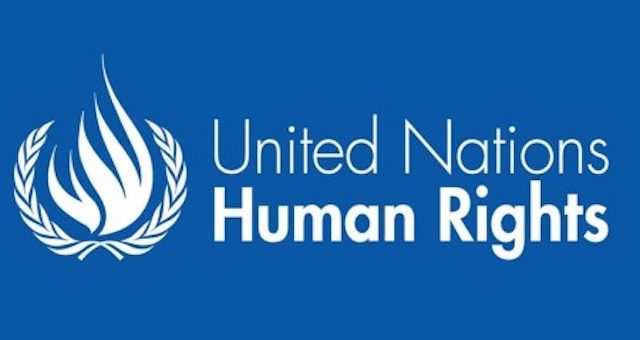Justice
From laggard to leader: CleanBC repositions BC as a leader in the 21st century low carbon economy
 Today I joined Premier John Horgan, Minister George Heyman and Minister Michelle Mungall in Vancouver to announce British Columbia’s new CleanBC economic plan aimed at positioning BC as a leader in the 21st century, low carbon economy.
Today I joined Premier John Horgan, Minister George Heyman and Minister Michelle Mungall in Vancouver to announce British Columbia’s new CleanBC economic plan aimed at positioning BC as a leader in the 21st century, low carbon economy.
This announcement was very important to me as it represented the culmination of several years work. As anyone who watched the documentary Running on Climate will know, I originally ran for office in 2013 with the BC Green Party as a point of principle — I could not stand by and watch Gordon Campbell’s legacy of leadership in the low carbon economy be dismantled by the Christy Clark government.
Today’s announcement repositions BC on the path to realize a 40% reduction in greenhouse gas emissions, relative to 2007 levels, by 2030. What’s especially exciting about today’s announcement is that it re-emphasizes the reality that reducing greenhouse gas emissions will lead to economic opportunity and prosperity for BC.
Below I reproduce the speaking notes I was planning to follow (although I went off script) along with the accompanying press release, and my overall reaction to the plan (in video).
Speaking Notes
 Over the last 150 years, Earth has made a transition from the past, when climate affected the evolution of human societies, to the present, in which humans are affecting the evolution of climate and weather.
Over the last 150 years, Earth has made a transition from the past, when climate affected the evolution of human societies, to the present, in which humans are affecting the evolution of climate and weather.- What we are at risk of losing on this planet – what has already started to die off or slip away – is staggering.
- And today, as I speak to you, we are at a pivotal moment in human history: Our generation is responsible for deciding what path the future climate will take.
- We will either be complicit in allowing climate change to despoil our world – or we can fight for a different outcome for our children.
- As Sir David Attenborough said Monday in Poland at the UN Climate talks, “If we don’t take action, the collapse of our civilizations and the extinction of much of the natural world is on the horizon.”
- As a climate scientist, I have spent my entire adult life consumed by this threat and the opportunities that will come with it.
- As a professor at the University of Victoria, my students would ask me, year after year, why so little progress was being made to combat climate change. In response I would encourage them to get involved with leaders who took global warming seriously or, if there were none, to consider running for office themselves.
- I tried to take my own advice.
- In 2007, I had the honour of being on the Climate Action Team that advised Premier Gordon Campbell.
- That work led to B.C. becoming the first jurisdiction in North America to put a price on carbon.
- B.C. stood as an example of how putting a price on carbon is perfectly compatible with prosperity.
- Our emissions dropped as our economy grew.
- And when I saw that leadership and progress being dismantled by the administration that followed, I put my name forward for public office.
- I knew I would not be able to look my kids in the face if I didn’t do everything I possibly could to fight for their future.
- That fight has not been easy.
- But I am very happy and proud to be here today, to be here to say that it has been worth it.
- By tackling climate change, with carefully designed policies, B.C.’s economy can grow in new ways.
- CleanBC offers a pathway for B.C. to be on the cutting edge of the low-carbon economy.
- This plan is a vital first step towards keeping B.C.’s climate commitments.
- Climate change is daunting and overwhelming, yes, but within every challenge lies opportunity.
- We worked hard to ensure that CleanBC is not just a climate plan – it is an economic vision.
- It is not just the Ministry of Environment’s responsibility – it is an all. of. government approach.
- B.C. has all the strategic advantages needed to seize low-carbon economic opportunities and this plan will ensure we maximize our full potential.
- I have long believed that our children and grandchildren will ask us one of two questions when they look back at the beginning of this century.
- It will either be: “How could you let this happen?”
- Or, if we choose a different path, they will ask: “How did you solve this problem when so many said you couldn’t?”
- To be a climate scientist one must be an optimist. Frankly, I’ve found it helps you survive politics too.
- I am convinced my children will one day ask me the second question. And when they do I will answer:
 “We prevailed because we worked together. We saw the threat and we knew we had to deal with it.”
“We prevailed because we worked together. We saw the threat and we knew we had to deal with it.”- I am greatly encouraged by the spirit of hope and collaboration in which this plan was written and thank the government, in particular Minister Heyman, for their efforts in this regard.
- There is much work still to be done, but today I feel we are one step closer to that brighter future.
- Thank you again, to everyone who has helped us get here.
- Please join me in welcoming Minister Heyman.
Media Release
Weaver: B.C. climate plan offers pathway to low-carbon economy
For immediate release
December 5, 2018
VICTORIA, B.C. – Andrew Weaver, leader of the B.C. Green Party, says the CleanBC plan released today offers a pathway for B.C. to be on the cutting edge of the low-carbon economy. Weaver says the plan is a vital first step towards keeping B.C.’s climate commitments and looks forward to building on this progress in the months ahead.
“This plan offers a pathway for B.C. to have a thriving low-carbon economy,” said Weaver.
“Climate change is the most significant challenge facing humanity. Each megatonne of carbon we take out of the equation will bring us closer to limiting global warming, in turn limiting the economic damage, social upheaval and human suffering threatened by climate change. British Columbians should be proud that this plan can make a difference.
“Within every challenge lies opportunity. This is why we worked hard to ensure that CleanBC puts a vision for B.C.’s economy at its centre. B.C. has all the strategic advantages needed to seize low-carbon economic opportunities and this plan will ensure we maximize our full potential. I am greatly encouraged by the spirit of hope and collaboration in which this plan was written and thank the government, in particular Minister Heyman, for their efforts in this regard.
“This has been a year of hard choices for our Caucus. The decision of the government to go ahead with LNG was a low point. I will always argue that the development of new large fossil fuel infrastructure is inconsistent with our commitments under the Paris Agreement. But this plan, and the preliminary work we have done on how we will achieve the remaining reductions, give me confidence that our targets may be within reach and that they are certainly worth fighting for. I am pleased that the plan will be backed up with funding in the next budget, and that the government has agreed to enact an accountability framework to hold the current and future governments to account.
“Climate change will test every modern leader and history will judge each of us by our actions. We must come together around our shared desire to secure a bright future for our children and grandchildren and advance every available solution to limit global warming. This will require us to sit at the table with people from across the political spectrum and stay at the table even when we don’t always get exactly what we want. The scale of this challenge calls on us to ask not what is the least we can do, but what is the most we can achieve.
“This plan is a commendable start and I am proud of the work we have done to get it to this point, but we need to keep pushing forward. The time for decisive action is now and we will keep fighting for better.”
-30-
Media contact
Jillian Oliver, Press Secretary
+1 250-882-6187 | jillian.oliver@leg.bc.ca
Video of Overall Reaction
Bill 50: Human Rights Code Amendment Act, 2018
Today on the legislature we debated Bill 50: Human Rights Code Amendment Act, 2018 at second reading. This bill re-establishes the British Columbia Human Rights Commission after it was disbanded by the BC Liberals in 2002. BC is in the only province in the country without a human rights commission.
Before 2002 BC had a Human Rights Commissioner which worked as the gatekeeper to the tribunal and did investigations directly. Instead of going back to that model, this Bill creates a ‘direct access’ model, which works well in other jurisdictions like Ontario. The Tribunal will continue to be responsible for all aspects of human rights applications (processing, mediation and adjudication), while the commission will look at broader patterns of systemic human rights issues, policy development and public education
This bill closely follows the 25 recommendations in the report compiled by Parliamentary Secretary for Sport and Multiculturalism Ravi Kahlon on establishing a new BC human rights commission. The report outlines recommendations in five categories, including the commission’s creation, purpose, functions, powers and early priorities.
Below I reproduce the text and video of my second reading speech.
Text of Speech
A. Weaver: I rise to take my place in this second reading debate on Bill 50, Human Rights Code Amendment Act. As I’ve mentioned, this bill re-establishes the British Columbia Human Rights Commission after it was disbanded by the B.C. Liberals in 2002. It does this by amending the human rights code to establish an independent Human Rights Commission office.
As I mentioned, this is another example of pendulum swings that have plagued our first-past-the-post system here in the province of British Columbia. When governments come in, we see broad policy sweeps — very costly at times — as, for example, the labour code and others where policies comes in and are taken back as governments switch with the different ideologies.
I’m looking forward to these kind of changes — more draconian pendulum swings no longer really taking place here in British Columbia — with a successful referendum on proportional representation. One of the things we know is that policies like this…. You don’t establish something, then tear it down and then re-establish it and tear it down.
That tends to get mitigated, and we wouldn’t have to be debating this today were we to have a government that was required to listen to broader elements of our society than, perhaps, was required in 2002, when there were but two NDP MLAs sitting in opposition and every other MLA was a member of the B.C. Liberal Party, despite just getting slightly over 50 percent of the vote.
The new office is going to be similar to other independent offices, like, for example, the Representative for Children and Youth. Obviously, I’m delighted that this is being introduced into this House. Both the B.C. NDP and the B.C. Greens campaigned on bringing back a human rights commission to actually look at human rights issues proactively instead of just reactively, as is done now.
This bill is finally bringing B.C. in line with other jurisdictions in the country. We are the only province that has not had a human rights commission these past 16 years. It’s yet another noteworthy aspect of British Columbia that we are not so proud of, not having a human rights commission for the last 16 years.
The new bill and the new provisions in the bill that will be enacted will not take us back to the pre-2002 model but will instead set up a similar model to what exists presently in Ontario. In that respect, it’s less of a pendulum swing than we might have otherwise have expected.
The bill follows the 25 recommendations that were outlined in the report brought forward by the Parliamentary Secretary for Sport and Multiculturalism. This report was based on eight weeks of public consultation on this subject. Of course, as well the UN Paris principles had been used as a guide for drafting of this bill.
This bill is needed for a number of reasons. It’s needed to fight systemic injustices across our province, to protect against patterns of discrimination proactively and to be able to champion education campaigns on human rights and inequality across the province, particularly in areas where there are systemic issues.
It’s important to allow the commissioner the power to create guidelines in education programs for other institutions in our province to use as well. This bill is, therefore, putting back the Human Rights Tribunal into the rightful place as the arbitrator of specific complaints regarding human right contraventions.
There’s many things in British Columbia affecting British Columbians that that need an office like this with a mandate like this to look into. The number one issue referred to the current Human Rights Tribunal is disability non-accommodation. I would anticipate that this this is an area that the new commissioner will work on proactively, as well, to explore systemic issues of disability and non-accommodation.
To give a bit of history in this, we’ve gone back and forth in B.C., as I mentioned, on having a human rights commissioner and commission. We had one, for example, that the Socred government eliminated in 1983. Then we didn’t have one, and then the B.C. NDP government of the 1990s brought it back in. And the B.C. Liberals, in 2002, brought it out, and now it’s coming back in again — a beautiful example of the pendulum swing that has mired B.C. politics for such a long time, where we’ve had dynasties of single-party domination, which, after many years, forget to actually remind itself that it is there to represent the people and not its vested interests or its donors.
Hopefully, this is the last time the pendulum will swing and that it will settle in the middle, along the lines of what every other province in our country has — a human rights commission that not only reacts to human rights issues that are brought to it but is proactive in terms of dealing with systemic issues of human rights contravention in our province.
We like to think that there are none, but we all know cases where there are. In 2002 — giving some more history here — the human rights commission was eliminated for political reasons, I would argue. It was forced to cut its budget, cut its staff, and to add insult to injury, the commissioner and the acting chief commissioner were fired in the morning before legislation to get rid of the commission was introduced.
Fired in the morning before the legislation was introduced to eliminate the commission. Somewhat spiteful, if you ask me, and not a type of signal, really, that we should be sending the province of British Columbia. It was widely condemned, this decision, by the human rights groups across the province.
One of the only MLAs that raised the voices of the human rights groups that were affronted by the B.C. Liberals removing this commission was Jenny Kwan, one of but two NDP MLAs serving in the B.C. Legislature in 2002.
She said that by abolishing the commission, B.C. will fail to meet the criteria of the Paris principles, which require that human rights agencies have “independence guaranteed by statute or constitution, autonomy from government, diverse membership, a broad mandate based on universal human rights standards, adequate powers of investigation and sufficient resources.”
Government shutdown the previous human rights commission to save $3.1 million, but at what cost? At what cost to broader society did this saving of $3.1 million lead? Perhaps the government knew that further cuts were coming when it did it. It was consistent with the government of the day, in essence, disadvantaging those who were already disadvantaged. Not raising rates — disability rates, welfare rates, housing assistance rates — for a decade. It was consistent with a kind of mean-spirited approach to government that prevailed at that time.
B.C. has not had a body that could look at systemic patterns of discrimination and recommended changes for almost two decades. That, of course, is all changing now with this legislation. The systemic discrimination facing Indigenous communities, women, people of colour, LGBTQ+ individuals, people with disabilities. It’s real, severe and completely unacceptable. The uphill battle faced by British Columbians who are at the intersection of more than one of these communities is even steeper.
Government had a hand in creating these discriminatory systems, so we need to dismantle them and rebuild a more fair and just province. This is what Bill 50, Human Rights Code Amendment Act, takes us on a journey and pathway towards creating.
I and my colleagues in the B.C. Green caucus are very supportive of this legislation and are delighted with the changes proposed — long overdue, long called for. I thank government for introducing them, and we’re proud to stand in support at second reading.
Video of Speech
On the Perrin report recommendations & reviews into money laundering & real estate
The BC Government today released Dan Perrin’s Real Estate Regulatory Structure Review, which was commissioned in April of this year to:
Concomitant with the release of the report, government announced that it was initiating two reviews into money laundering in British Columbia.
The first involves the creation of an Expert Panel on Money Laundering in Real Estate chaired by Maureen Maloney, a Professor in the School of Public Policy at Simon Fraser University.
The second entails commissioning Peter German, author Dirty Money: An Independent Review of Money Laundering in Lower Mainland Casinos conducted for the Attorney General of British Columbia, to conduct a another review but now focusing on the link between potential money laundering in casinos and the real estate sector, as well as potential money laundering activities in the horse racing and luxury car sectors.
My office issued a press release welcoming the recommendations of the Perrin report and the establishment of the two reviews into money laundering. In addition, I urged government to accept the recommendations of the Perrin report.
Below is a copy of our press release.
Media Release
Weaver welcomes Perrin report recommendations and reviews into money laundering and real estate
For immediate release
September 27, 2018
VICTORIA, B.C. – Andrew Weaver, leader of the B.C. Green Party, urged government to implement the recommendations of Dan Perrin’s real estate regulatory structure review.
“I urge government to implement the recommendations of the Perrin report,” said Weaver. “The current regulatory structure has created dysfunction that is confusing for industry and falls short in consumer protection.”
Weaver also welcomed the government’s announcement of two reviews into the role of money laundering in the real estate sector. Both the Perrin report and Peter German’s report Dirty Money recommend further investigation into the connection between money laundering and real estate.
“Along with undertaking these reviews, we must act swiftly to root out any criminal activities in our real estate market. When it comes to something as vital as British Columbians homes, ensuring that the market is not susceptible to distortion by fraud and money laundering is absolutely critical.
“Our Caucus is committed to supporting policy changes that will remedy any gaps, loopholes or inadequacies that are allowing our real estate market to be distorted through speculation and illegal activity.”
-30-
Media contact
Jillian Oliver, Press Secretary
+1 778-650-0597 | jillian.oliver@leg.bc.ca
Findings of fish processing compliance audit show need for reform
The BC Government today released the Fish Processing Facilities Compliance Audit Report that was commissioned following findings by Tavish Campbell that effluent containing the Piscene Reovirus (so-called “blood water”) was being discharged from a BC fish processing facility.
This issue was explored by my colleague Sonia Furstenau during question period late last year:
The report provides a clear illustration of the type of problems that have arisen from the previous BC Liberal administration’s severe cutbacks to compliance and enforcement initiatives within government.
As the Minister of Environment and Climate Change Strategy noted in the government’s statement accompanying the report’s release:
“The industry has been largely operating under an outdated permitting regime, going back several decades. We are taking immediate steps to ensure permits are updated and strengthened at fish processing facilities throughout B.C.”
Between ICBC, money laundering, the housing crisis and a litany of environmental disasters, it’s increasingly clear that the previous government badly mismanaged our province.
Government has a responsibility to ensure the public interest by proactively updating laws and regulations to fit changing realities. Instead, the previous government left British Columbians with mounting debts while they pillaged the public books and turned a blind eye to harmful activities. We have taken significant steps to remedy this, including banning big money and reforming the lobbying industry, but we must take every opportunity in this minority government to clean up B.C. to prevent such blatant misuse of power.
Below I reproduce the media statement that the BC Green caucus issued in response to government’s release of the report.
Media Release
Findings of fish processing compliance audit show need for reform: B.C. Green caucus
For immediate release
July 4, 2018
VICTORIA, B.C. – The B.C. Green Caucus is calling on government to step up marine monitoring and protection in the wake of an audit of fish processing facilities. Andrew Weaver, leader of the B.C. Green Party, says the report shows a disturbing pattern of widespread mismanagement by the previous B.C. Liberal government that must be addressed.
“Between ICBC, money laundering, the housing crisis and a litany of environmental disasters, it’s increasingly clear that the previous government badly mismanaged our province,” said Weaver. “Government has a responsibility to ensure the public interest by proactively updating laws and regulations to fit changing realities. Instead, the previous government left British Columbians with mounting debts while they pillaged the public books and turned a blind eye to harmful activities. We have taken significant steps to remedy this, including banning big money and reforming the lobbying industry, but we must take every opportunity in this minority government to clean up B.C. to prevent such blatant misuse of power.”
Sonia Furstenau, environment spokesperson, added that the findings show why government should adopt Mark Haddock’s recommendations to reform the professional reliance model.
“As the previous government cut the funding needed to fulfill government’s duty to protect the public interest, they saddled our province with completely avoidable messes,” said Furstenau. “Many British Columbians were horrified, like I was, to see Tavish Campbell’s videos of blood water effluent that prompted this audit. It is no wonder people don’t trust the process when we must rely on private citizens and the media to bring such serious issues to light. Adopting Mark Haddock’s recommendations – and the ministry’s recommendations following this audit – will go a long way to restoring the public’s trust that government is looking out for their health and safety, as well as the long-term sustainability of our natural resource sector.”
Adam Olsen, spokesperson for agriculture, said the findings underscore the litany of threats facing B.C.’s wild salmon and added the release of infected blood from farmed fish is another reason why the government should keep its promise to transition away from open-net pen finfish aquaculture.
“Wild salmon are culturally, economically and environmentally essential to our province, yet we are allowing them to be hit at every stage of their development,” said Olsen. “Now we learn they have also been exposed to ‘acutely lethal’ levels of effluent.”
DFO’s 2018 salmon outlook for B.C. states that of 91 different groupings of salmon, only 28 are expected to be at or above the amount necessary for a healthy population.
“This is absolutely unacceptable – we can and we must do better if we want our grandchildren to live in a province with wild salmon,” added Olsen.
-30-
Media contact
Jillian Oliver, Press Secretary
+1 778-650-0597 | jillian.oliver@leg.bc.ca
Bill 28: Public Interest Disclosure Act
Today in the legislature we debated, at second reading, Bill 28: Public Interest Disclosure Act.
This bill proposes legislation based on the recommendations of the B.C. Ombudsperson’s report entitled Misfire: The 2012 Ministry of Health Employment Terminations and Related Matters, that was published in April 2017. The Misfire report examined the wrongful termination of seven Ministry of Health workers in 2012.
Below I reproduce the video and text of my speech.
Video of Speech
Text of Speech
A. Weaver: It gives me great pleasure to rise and stand to speak at second reading in support of Bill 28, Public Interest Disclosure Act. This act is a direct response to the recommendations from the Ombudsperson’s report Misfire: The 2012 Ministry of Health Employment Terminations and Related Matters, which was published in April of 2017.
While I sat in opposition over the last few years, similar types of pieces of legislation were proposed by the then opposition. It was termed whistle-blower legislation at the time, and this is the latest manifestation of that, clearly passed through legislative drafters in a quite substantive matter to give us the form we see here.
The Ombudsperson’s report that formed the basis of driving this bill here investigated the dismissal of seven employees by the Ministry of Health after an initial complaint incorrectly suggested a wrongdoing. That complaint gained rather a lot of momentum and instigated a rush to, some would argue, an inequitable and inappropriate investigation. At the end, there were clearly far-reaching consequences for the individuals involved. In one particularly tragic case, an individual committed suicide as a consequence of the whole process.
The purpose of this act is to provide protection and to develop processes for current and former public service workers who wish to make a disclosure of serious wrongdoing. Public service workers protected under this act are those who are employees of a ministry, a government body or office, including a person appointed by the Lieutenant-Governor-in-Council under the Public Service Act. Again, it’s important that civil servants be given such protection in the case of the desire to actually protect the public interest and to be able to bring forward to the public significant matters of public interest when, say, a wrongdoing is noticed.
You know, in the United States right now it’s a bit of a free-for-all in terms of whistle-blowers disclosing left, right and centre. I suspect they should have such legislation, if they do not. In British Columbia’s case, and Canadians in general, we take these matters very seriously. We’re respectful, and typically Canadians, by our very nature, are sometimes…. We don’t like conflict. We don’t like to actually create conflict, but we like to be protected when we see an injustice being done that needs to be brought forward so that injustice is dealt with.
In this particular case, we are seeing that protection will be given in the province of British Columbia to civil servants who might witness such injustice or inappropriate activities that are happening. Right now a person who discloses information must not experience reprisal, according to this act, and will also have the option of disclosing it anonymously to further protect their information. This, too, is important if an investigation is occurring and a whistle-blower to be protected under this act does not want to disclose himself or herself publicly. It’s important to have the protection.
While the bill actually does authorize investigations to occur and it also provides protection for such a whistle-blower, a person in the public service, the problem, of course, is not necessarily the direct response but also the whisper chat. So anonymity is important to avoid the cold-shoulder treatment, the “nobody’s talking to you,” the high school or, should I say, middle school bullying and harassing that sometimes happens. So anonymity being protected is important.
The act is based on other legislation. In particular, there are two pieces of legislation. One is the Manitoba law, which is the Public Interest Disclosure (Whistleblower Protection) Act, which was assented in 2006 in the province of Manitoba. There is some similarity between these two as well as in the province of Alberta, where the Public Sector Disclosure Act is also a similar act in that province, too, I understand.
The Health firings. Again, some of the issues that perhaps need to be brought forward may not also have been highlighted or thought through in this bill, in particular the pervasive issue of harassment, bullying and intimidation in the workplace. We’re hoping that protection for whistle-blowers from such behaviour is also included in this.
Of course, the bill does put a lot of faith in the Office of the Ombudsman or the Auditor General. It seems to me that if we’re giving them so much responsibility as per the matters of the bill, we should ensure that there are safeguards in place that ensure equitable operations in all of these as well. Again, this is a bill that the Green caucus is proud to support. We thank the Attorney General’s office for bringing it in, and we look forward to further expansion in committee stage of some of the details contained in this report.








